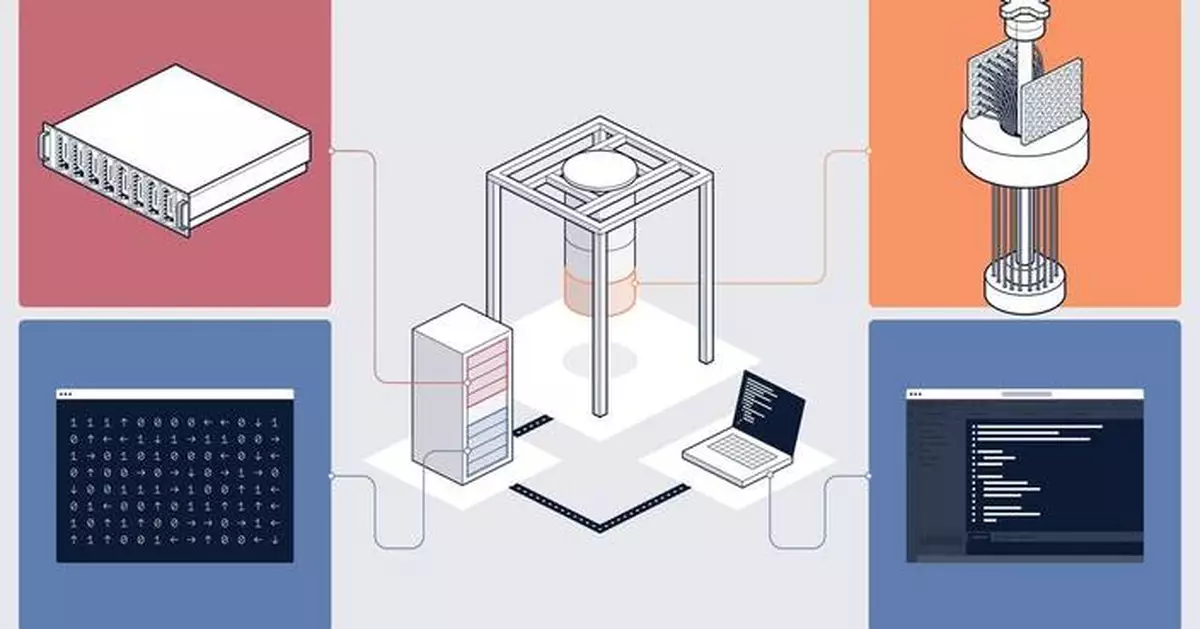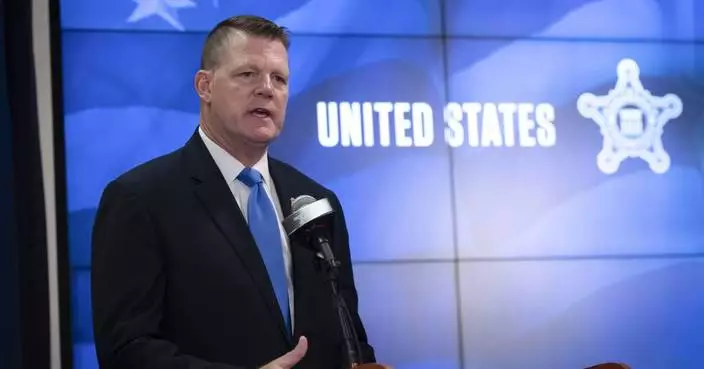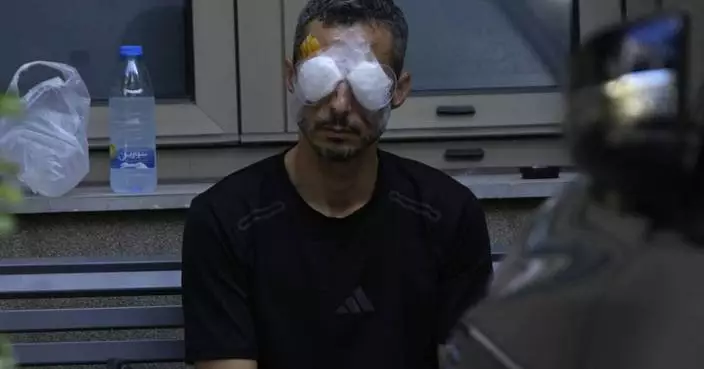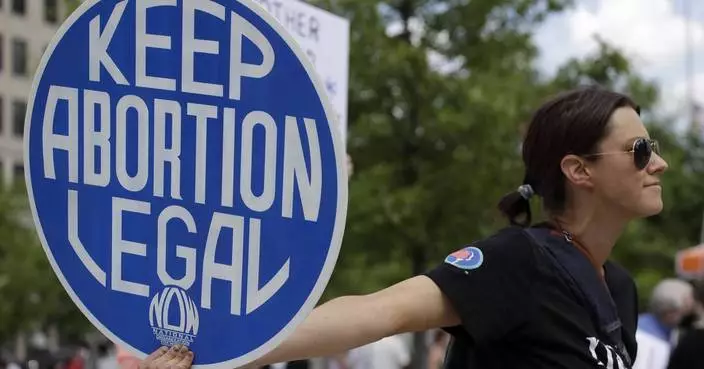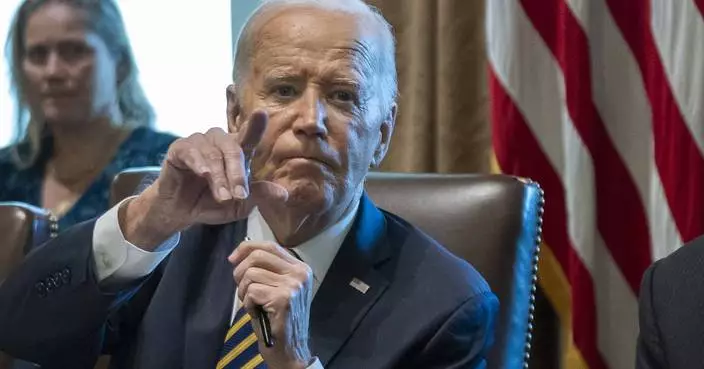SINGAPORE--(BUSINESS WIRE)--Apr 18, 2024--
Horizon Quantum Computing, a company building software development tools for quantum computers, today announced that it is establishing a first-of-a-kind testbed for integrating quantum computing hardware with its software stack, Triple Alpha. The testbed, which will be set up at Horizon’s Singapore headquarters, will have the capacity to host multiple quantum computers. By acquiring its own hardware, Horizon gains full control over both hardware and software stacks, allowing it to push the frontiers of quantum computing.
This press release features multimedia. View the full release here: https://www.businesswire.com/news/home/20240418068549/en/
A key aspect of Horizon’s quantum computing testbed is its modular multi-vendor approach. Rather than utilising a single-vendor solution, the company has purposely selected best-in-class components from different providers. This modularity allows Horizon to integrate its software stack with different hardware configurations and upgrade the system over time.
The first system will be based on a Novera™ quantum processor from Rigetti Computing and OPX1000, the processor-based quantum controller from Quantum Machines. The integrated system is expected to be installed by early 2025.
“Recent progress on quantum processors and error correction has underscored the rapid pace of progress in the field. We are taking the step of creating this testbed because we believe that tight integration between hardware and software is the shortest path to truly useful quantum computing,” said Dr Joe Fitzsimons, Founder & CEO at Horizon Quantum Computing. “We are delighted to work with Rigetti Computing and Quantum Machines on our first system.”
“We are thrilled that Horizon has selected the Novera QPU for their first quantum computing system. Establishing high performing on-premise quantum computing capabilities is key for working towards useful quantum computing,” said Dr Subodh Kulkarni, CEO at Rigetti Computing. “We can’t wait to witness what the Horizon team accomplishes with a quantum computing system powered by the Novera QPU and Quantum Machines’ control system.”
“We’re excited to partner with Horizon Quantum Computing and Rigetti Computing in this pioneering initiative. Our approach has always emphasized scalability, interoperability and modularity, principles that resonate with Horizon’s Triple Alpha,” said Dr Itamar Sivan, co-founder and CEO of Quantum Machines. “This collaboration with industry pioneers like Horizon and Rigetti not only showcases the adaptability and effectiveness of our processor-based OPX1000 controller in diverse setups, but also marks a significant step forward in the collective journey towards useful quantum computers.”
About Horizon Quantum Computing
Horizon Quantum Computing is developing a new generation of programming tools to simplify and expedite the process of developing software for quantum computers. By removing the need for prior quantum computing experience to develop applications for quantum hardware, Horizon’s tools are making the power of quantum computing accessible to every software developer.
The company was founded by Dr Joe Fitzsimons in 2018, a former professor with two decades of experience in quantum computing and computational complexity theory. The leadership team also includes Dr Si-Hui Tan, Chief Science Officer, who holds a Ph.D. in Physics from MIT and has been actively involved in quantum research for the same period.


Illustration of Triple Alpha web-based IDE and compiler suite from Horizon Quantum Computing, along with backend server, integrated with a Novera™ quantum processor from Rigetti Computing and OPX1000, the processor-based quantum controller from Quantum Machines (Graphic: Business Wire)
COLUMBIA, S.C. (AP) — South Carolina put inmate Freddie Owens to death Friday as the state restarted executions after an unintended 13-year pause because prison officials couldn’t get the drugs needed for lethal injections.
Owens was convicted of the 1997 killing of a Greenville convenience store clerk during a robbery. While on trial, Owens killed a person incarcerated at a county jail. His confession to that attack was read to two different juries and a judge who all sentenced him to death.
Owens, 46, made no final statement. His last meal was two cheeseburgers, french fries, well-done ribeye steak, six chicken wings, two strawberry sodas and a slice of apple pie.
When the curtain to the death chamber opened, Owens was strapped to a gurney, his arms stretched to his sides. After the drug was administered, he said “bye” to his lawyer and she said “bye" to him.
He smiled slightly and his facial expression did not change much before he appeared to lose consciousness after about a minute. Then his eyes closed and he took several deep breaths. His breathing got shallower and his face twitched for another four or five minutes before the movements stopped.
A doctor came in and declared him dead a little over 10 minutes later at 6:55 p.m.
Owens' last-ditch appeals were repeatedly denied, including by a federal court Friday morning. Owens also petitioned for a stay of execution from the U.S. Supreme Court. South Carolina's governor and corrections director swiftly filed a reply, stating the high court should reject Owens' petition. The filing said nothing is exceptional about his case.
The high court denied the request shortly after the scheduled start time of the execution.
His last chance to avoid death was for Republican South Carolina Gov. Henry McMaster to commute his sentence to life in prison. McMaster denied Owens' request as well, stating that he had “carefully reviewed and thoughtfully considered” Owens' application for clemency.
Owens may be the first of several people to die in the state's death chamber at Broad River Correctional Institution. Five other people are out of appeals, and the South Carolina Supreme Court has cleared the way to hold an execution every five weeks.
South Carolina first tried to add the firing squad to restart executions after its supply of lethal injection drugs expired and no company was willing to publicly sell them more. But the state had to pass a shield law keeping the drug supplier and much of the protocol for executions secret to be able to reopen the death chamber.
To carry out executions, the state switched from a three-drug method to a new protocol of using just the sedative pentobarbital. The new process is similar to how the federal government kills people on death row, state prison officials said.
South Carolina law allows condemned people to choose lethal injection, the new firing squad or the electric chair built in 1912. Owens allowed his lawyer to choose how he died, saying he felt if he made the choice he would be a party to his own death, and his religious beliefs denounce suicide.
Owens changed his name to Khalil Divine Black Sun Allah while in prison, but court and prison records continue to refer to him as Owens.
Owens was convicted of killing Irene Graves in 1999. Prosecutors said he fired a shot into the head of the single mother of three who worked three jobs when she said she couldn't open the store's safe.
Hanging over his case was another killing: After his conviction, but before he was sentenced in Graves’ killing, Owens fatally attacked Christopher Lee, whom he was incarcerated with at a county jail.
Owens gave a detailed confession about how he stabbed Lee, burned his eyes, choked and stomped him, ending by saying he did it “because I was wrongly convicted of murder,” according to an investigator's written account.
The confession was read to each jury and judge who went on to sentence Owens to death. Owens had two different death sentences overturned on appeal only to end up back on death row.
Owens was charged with murder in Lee's death but was never tried. Prosecutors dropped the charges with the right to restore them in 2019 around the time Owens ran out of regular appeals.
In his final appeal, Owens' lawyers said prosecutors never presented scientific evidence that Owens pulled the trigger when Graves was killed and the chief evidence against him was a co-defendant who pleaded guilty and testified that Owens was the killer.
Owens’ attorneys provided a sworn statement two days before the execution from Steven Golden saying Owens was not in the store, contradicting his trial testimony. Prosecutors said other friends of Owens and his former girlfriend testified that he bragged about killing the clerk.
Owens' lawyers also said he was just 19 when the killing happened and that he had brain damage from physical and sexual violence while in a juvenile prison.
“Mr. Owens’s childhood was marked by suffering on a scale that is hard to comprehend. He spent his adulthood in prison for a crime that he did not commit,” attorney Gerald “Bo” King said in a statement following Owens’ execution. “The legal errors, hidden deals, and false evidence that made tonight possible should shame us all.”
South Carolinians for Alternatives to the Death Penalty held a vigil outside the prison about 90 minutes before Owens was scheduled to die.
South Carolina’s last execution was in May 2011. It took a decade of wrangling in the Legislature — first adding the firing squad as a method and later passing a shield law — to get capital punishment restarted.
South Carolina has put 43 people to death since the death penalty was restarted in the U.S. in 1976. In the early 2000s, it was carrying out an average of three executions a year. Only nine states have put more people to death.
Since the unintentional execution pause, South Carolina’s death row population has dwindled. The state had 63 condemned people in early 2011. It now has 31 after Owens' death Friday. About 20 people have been taken off death row and received different prison sentences after successful appeals. Others have died of natural causes.
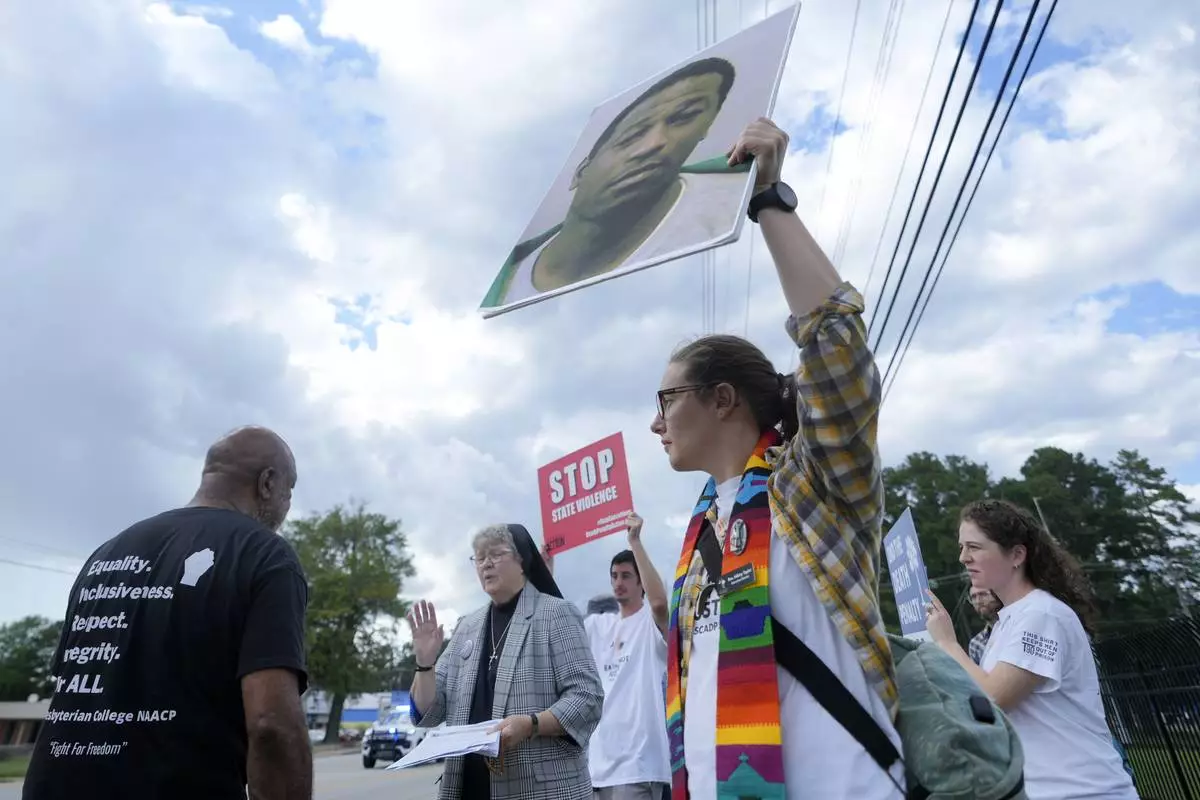
Rev. Hillary Taylor protests the planned execution of Freddie Eugene Owens, 46, on Friday, Sept. 20, 2024, in Columbia, S.C. Owens is set to be the first person to be executed in South Carolina in 13 years. (AP Photo/Chris Carlson)
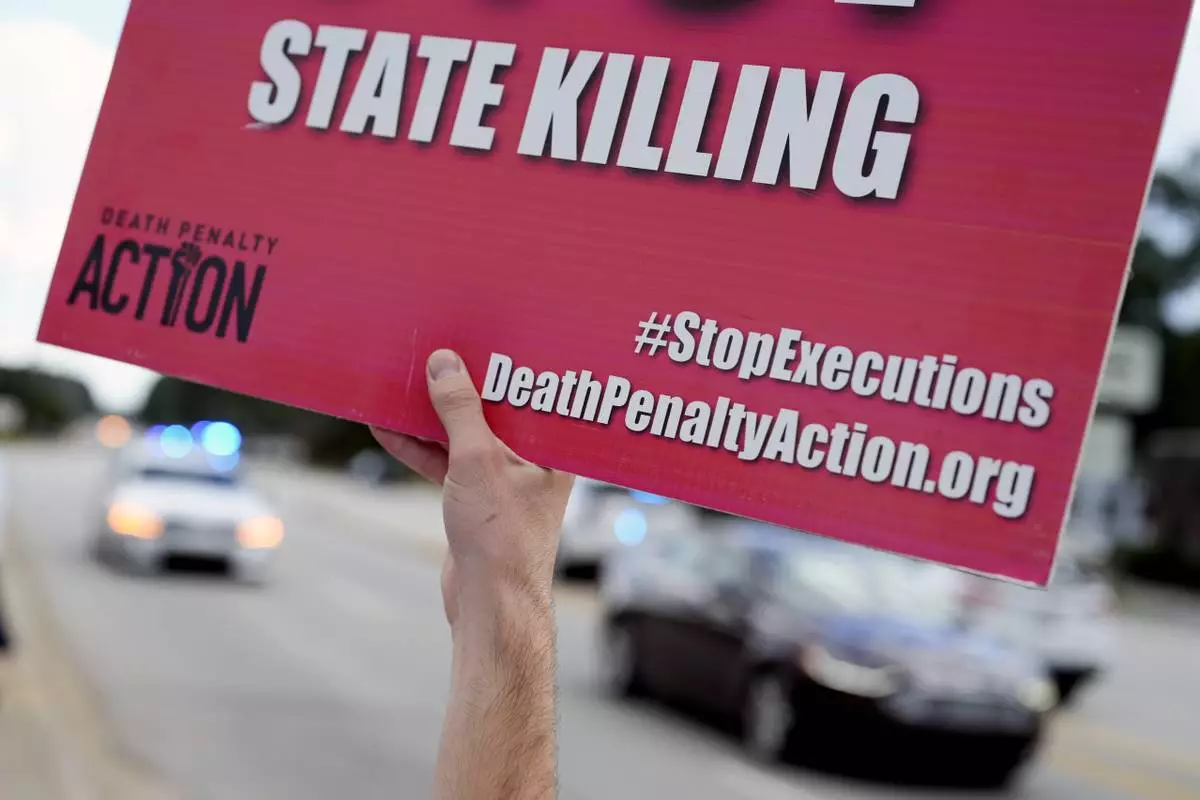
A demonstrators protests the planned execution of Freddie Eugene Owens, 46, on Friday, Sept. 20, 2024, in Columbia, S.C. Owens is set to be the first person to be executed in South Carolina in 13 years. (AP Photo/Chris Carlson)
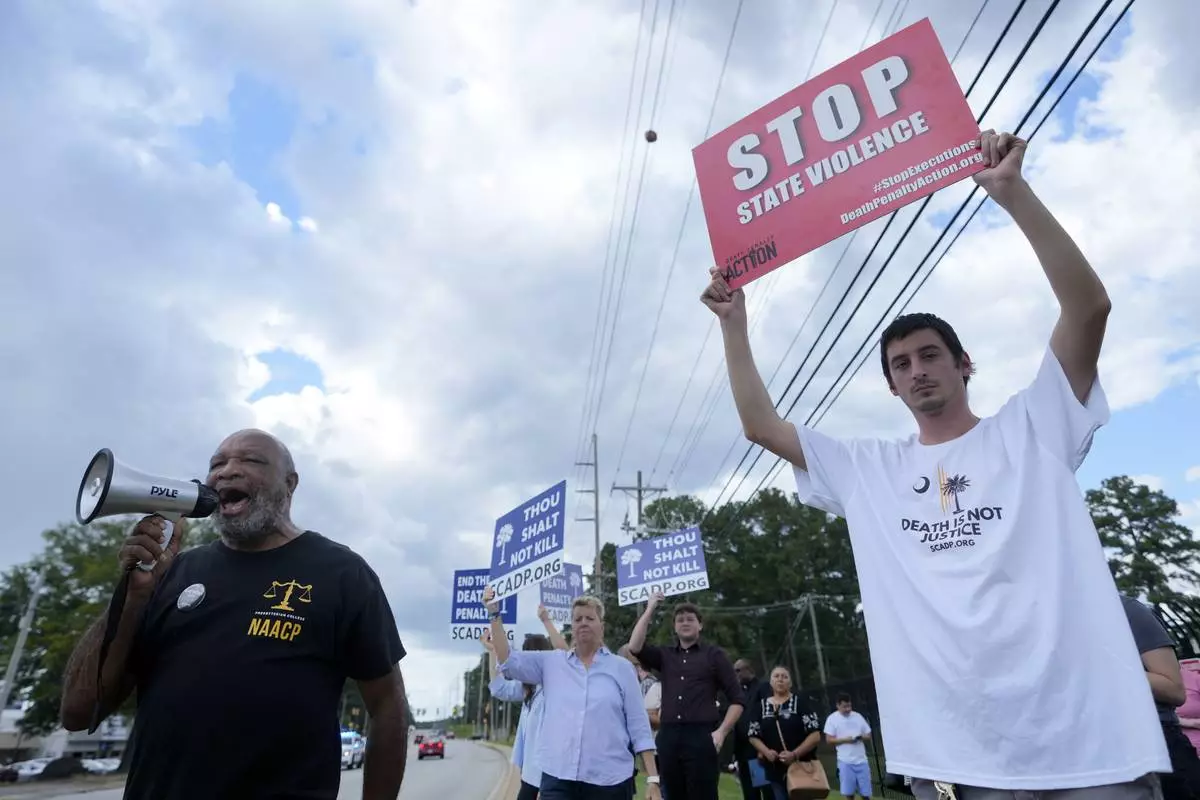
Jesse Motte, right, protests the planned execution of Freddie Eugene Owens, 46, on Friday, Sept. 20, 2024, in Columbia, S.C. Owens is set to be the first person to be executed in South Carolina in 13 years. (AP Photo/Chris Carlson)
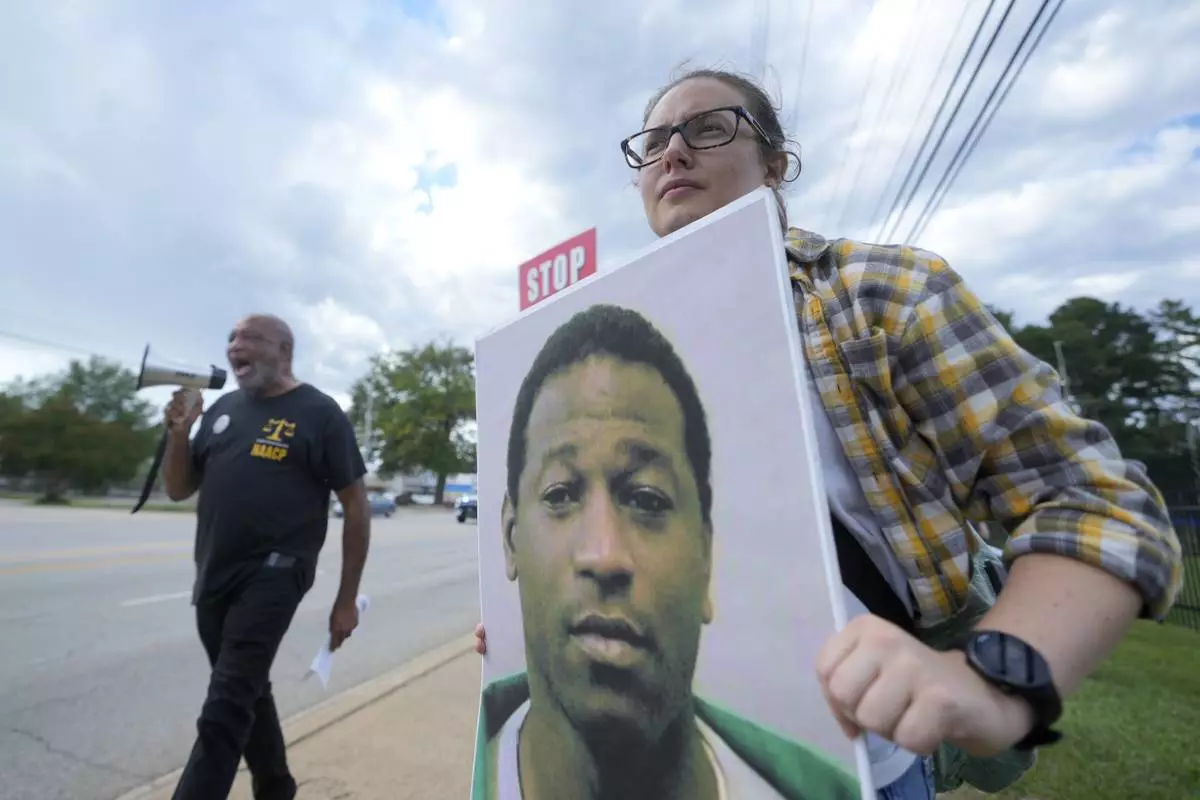
Rev. Hillary Taylor protests the planned execution of Freddie Eugene Owens, 46, on Friday, Sept. 20, 2024, in Columbia, S.C. Owens is set to be the first person to be executed in South Carolina in 13 years. (AP Photo/Chris Carlson)
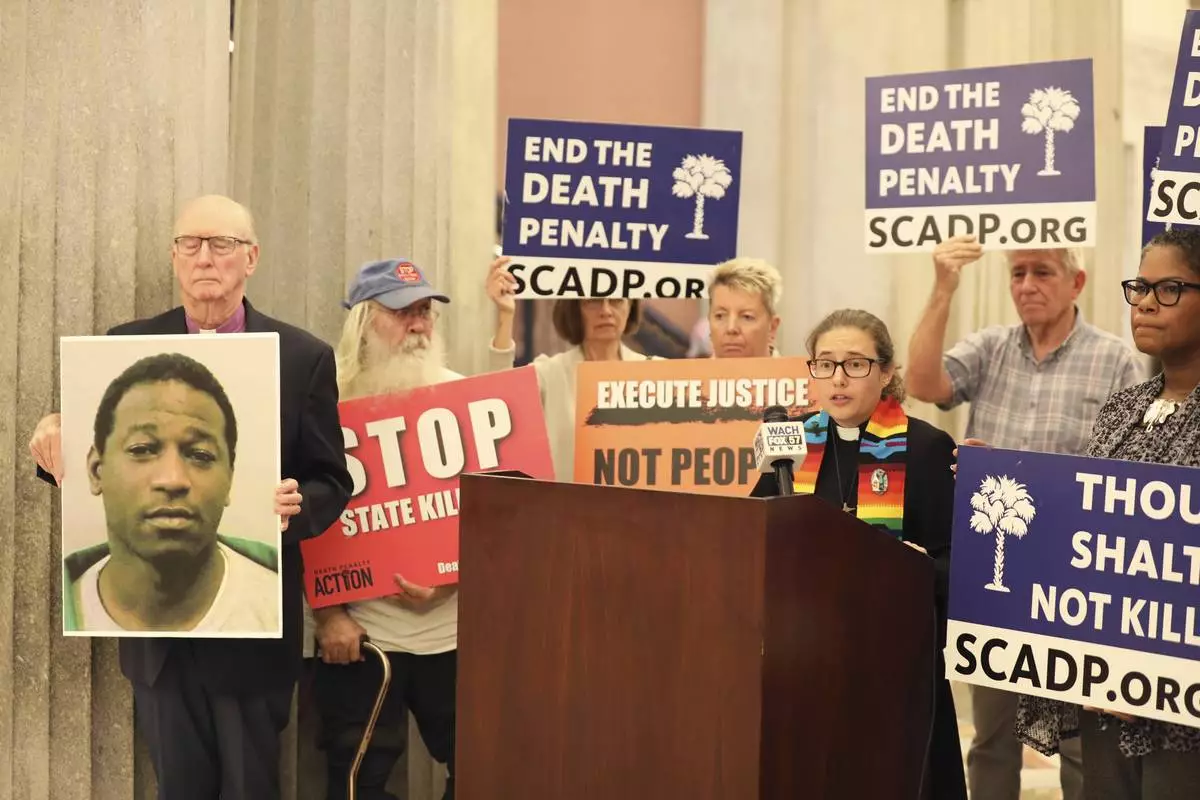
South Carolinians for Alternatives to the Death Penalty Executive Director Rev. Hillary Taylor speaks at a news conference before delivering petitions to stop the execution of Freddie Owens at the South Carolina Statehouse in Columbia, S.C., Thursday, Sept. 19, 2024. (AP Photo/Jeffrey Collins)
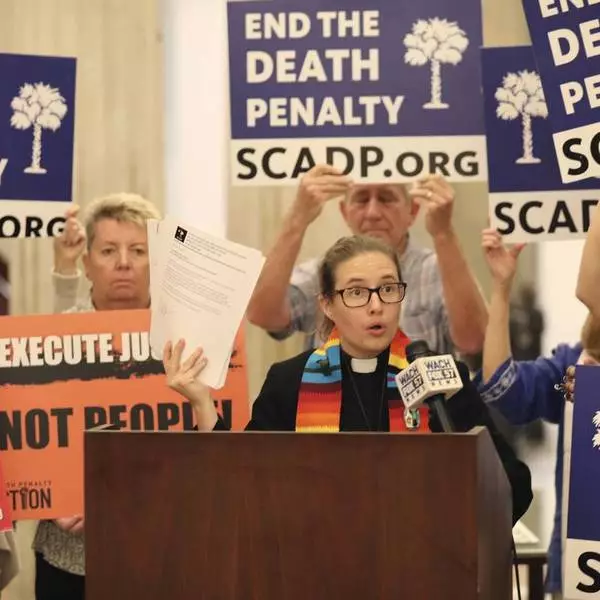
South Carolina prepares for first execution in 13 years
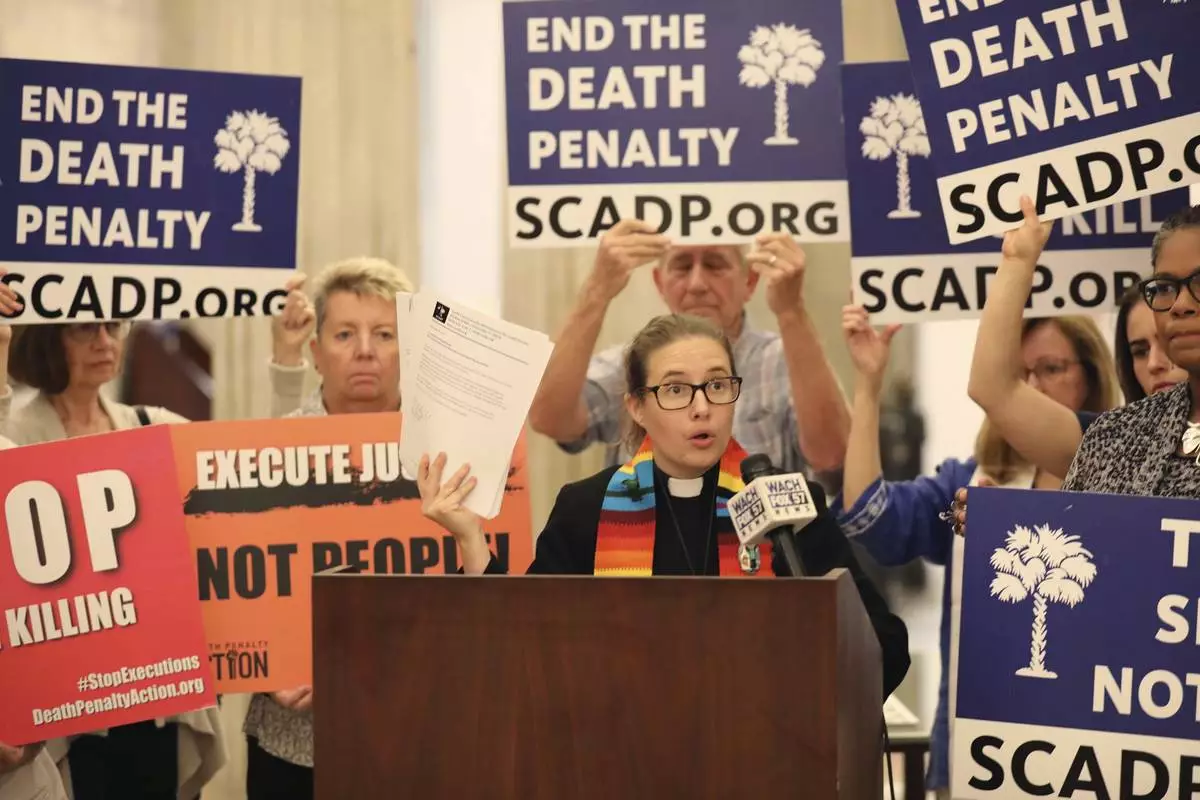
South Carolinians for Alternatives to the Death Penalty Executive Director Rev. Hillary Taylor speaks at a news conference before delivering petitions to stop the execution of Freddie Owens at the South Carolina Statehouse in Columbia, S.C., Thursday, Sept. 19, 2024. (AP Photo/Jeffrey Collins)
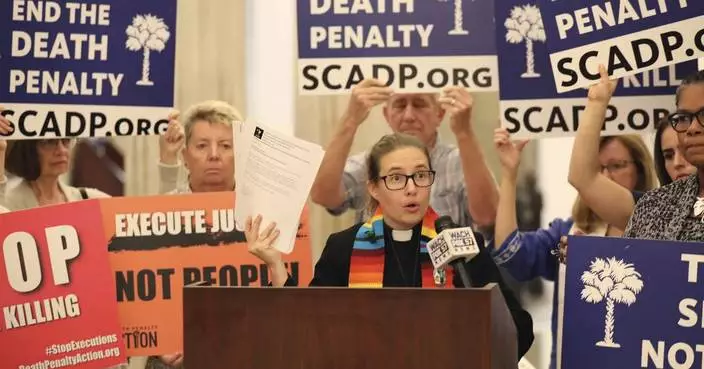
South Carolina prepares for first execution in 13 years




